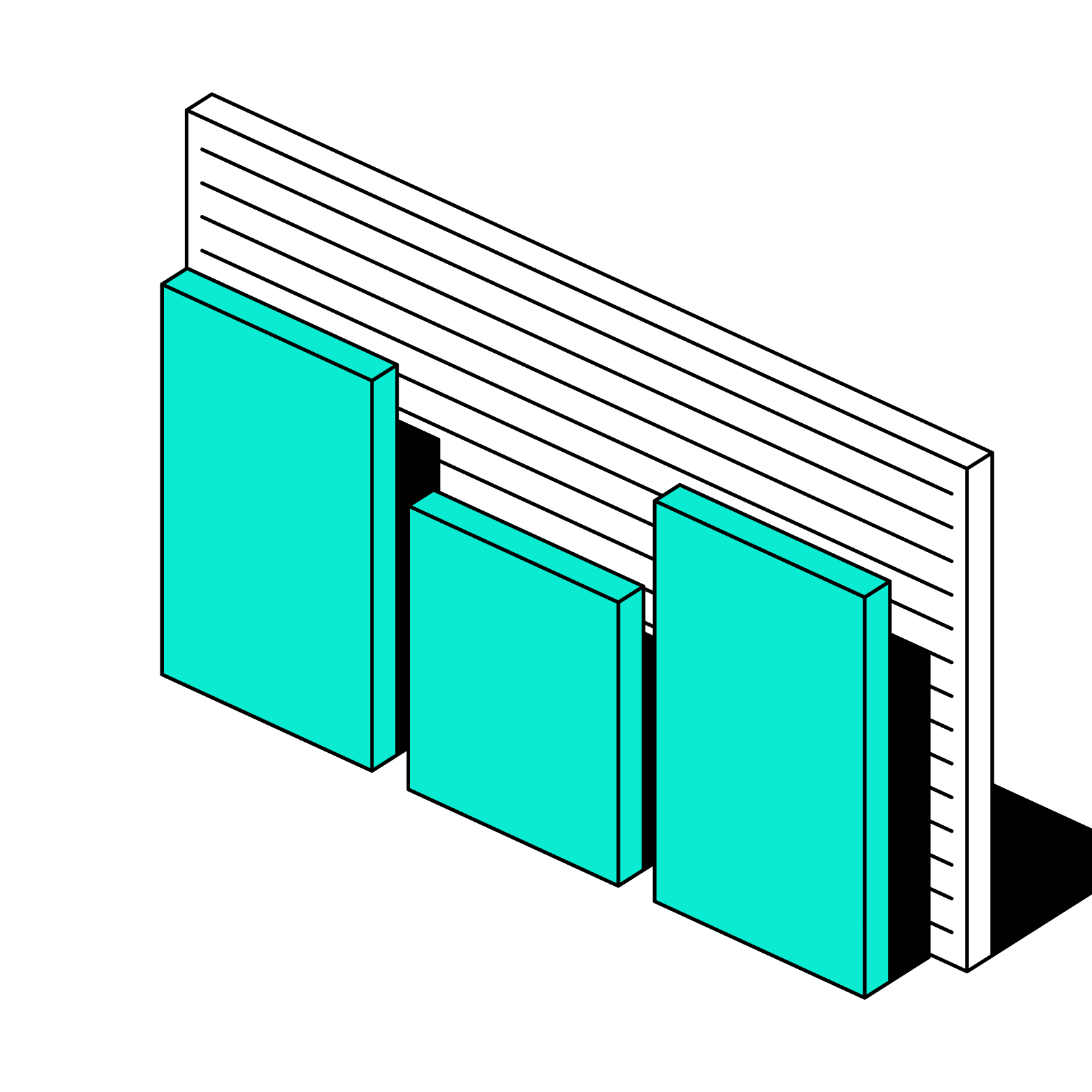Join the Kiwis who are hatching their tomorrow and have invested more than $2 billion with Hatch.
Saving and investing perform different functions and have a place in every investor’s money management toolkit. Savings can help you work towards a short term goal or purchase, or help you when money is tight. Investing may help you reach your long term goals, like a house deposit or your happy retirement. Your financial goals will help you to determine what mix is right for you. Let’s take a closer look at saving and investing definitions.
What’s the difference between saving and investing?
There are pros and cons to saving and investing, and both come with potential risks and benefits. Your financial goals can help you determine how savings and investments can play a role in helping you to reach them. So let’s look at some saving and investment definitions, and the difference between them.
Definition of saving money
Saving is putting money into a bank account, such as a personal or savings account or a term deposit, which you have aside to either:
- Buy something in your short to mid-term future (short-term goals, or whāinga tata)
- Have on hand as a financial buffer.
So, a savings account or term deposit is essentially short-term storage for your money.
Money in a savings account has the potential to grow thanks to the interest rate the account offers. Interest is compounded daily, monthly, quarterly, or at another interval. Compounding interest or growth means that money can earn interest on the interest the money has made since your initial deposit. So is a savings account an investment? Let’s read the next definition and find out.
Investment definition
Investing is buying an asset that you think may have the potential to increase in value (grow, or tipu) over a period of time. The most common investments are real estate, commodities like gold, bonds, and shares in companies or exchange traded funds (ETFs) listed on the share markets. And if you’re already contributing to KiwiSaver, that’s investing too - so congrats, you’re already an investor! Like having money in savings, investors also benefit from compounding interest or growth.
Is it better to save or invest?
The answer to that depends entirely on you, and your unique situation. Being clear on your life and financial goals can help you determine where you put your money to help achieve them, that is, into savings or investing.
For example:
- GOAL: You want to buy a paddleboard next summer
- SAVINGS: You put aside small sums of money every payday (or when you have extra) into a savings account so you can buy your board this year
- GOAL: Your car’s getting older and you want peace of mind for your next maintenance check
- SAVINGS: You keep your savings topped up so you’re financially prepared for any surprise bill
- GOAL: You don’t have job security but you want money set aside for food, bills, rent or your mortgage no matter what happens
- SAVINGS: You commit to putting a decent chunk of money into savings because it’s low risk and quick to access should you need it
- GOAL: You’ve just had a baby - congrats! - and you’d like to kick off their education or first home fund
- INVESTING: You kick-off an investment portfolio, such as opening a KiwiSaver account or a kids investment account, and deposit money over 18 years until they decide how they’ll use it
- GOAL: You’ve want to grow a house deposit or retirement fund over time
- INVESTING: You take an active interest in your KiwiSaver or your investing portfolio, researching assets, funds or fund managers that have historically shown they may have the potential to help you reach your goals.
Savings vs Investing
Time to look at the options and do some maths. Let’s kick off the conversation imagining you’ve received a $10,000 lump sum and you’re deciding what to do with it.
Option 1: Save nothing at all
$10,000 has landed in your bank account and you’ve decided it’s time for that great adventure you’ve been dreaming about. Or to buy that wishlist EV, or upgrade your career by enrolling in a course. Maybe you’re super pumped to buy an e-bike to make the most of those new cycle lanes. Sometimes a lump sum can change your current reality in a practical and positive way.
Option 2: Save it
You’re flush with $10,000 and you’ve decided to save it and you plan to deposit an additional $500 a month over the next 30 years. You decide to put your $10,000 lump sum in a high interest savings account, such as a term deposit. Using a term deposit rate of 5.35% - which at the time of publishing this blog was among the best on offer according to interest.co.nz - in 30 years you’d have around $301,777 and earned compound interest of around $111,777 (taking inflation into account).
Try experimenting yourself with Sorted.co.nz’s calculator that we used to do our calculations.
Option 3: Invest it
The US share markets have grown investors’ money by a historical average of 10% per year since 1957. So, looking backwards, let's say you invested your $10,000 in the share markets in an Index fund such as the S&P 500 some time after 1957, and invested an additional $500 a month for 30 years. Based on the average 10% historical return, that initial deposit may have grown to around $703,207 and earned compound interest of around $513,207.
Stacked side-by side the difference between both options could be up to around $401,430.

Option 4: Save and invest
But who says you have to choose between one or the other? Why not dine from the financial buffet and have both?
Say you split the $10,000 and put $5,000 into both saving and investing, and you contribute $250 per month towards each over 30 years. Taking into account inflation:
- Saving it - based on a term deposit rate of 5.35% and saving an additional $250 per month, that $5,000 initial deposit may have grown to around $158,889 in 30 years and earned you compound interest of around $55,888
- Investing it - based on the average 10% historical return of the S&P 500 Index and investing an additional $250 per month, that $5,000 initial deposit may have grown to around $351,603 in 30 years and earned you compound interest of around $256,603
Option 5: Aiming for a five year goal
Not everyone is looking at a 30 year horizon, and some may have shorter-term goals in their sight. This could be anything from helping towards a deposit for a first home, putting money aside for a child’s education, or planning an epic world trip to celebrate a big milestone.
So, that magical $10,000 has landed in your bank account, what does the maths say now?
- Saving it - based on the same term deposit rate of 5.35% and saving an additional $500 per month, that $10,000 initial deposit may have grown to around $21,794 in 5 years and earned you compound interest of around $1,794
- Investing it - based on the average 10% historical return of the S&P 500 Index and investing an additional $500 per month, that $10,000 initial deposit may have grown to around $25,054 in 5 years and earned you compound interest of around $5,054
These numbers take inflation into account, and are just a guide. The options for how you choose to use that lump sum likely depend on your age and stage in life. So let's now look more closely at the pros and cons of saving and investing to help you decide which options could help you reach your financial goals.
Keen to simply set a savings goal amount and see for yourself how much money you need to contribute every payday? Sorted’s calculator is a simple, quick tool, so jump in and start knocking off those plans.
Pros and Cons of saving and investing
Your savings and investments serve different purposes, so let’s look at the pros and cons of each.
The pros of saving your money
- Accessibility - Your first experience with a bank was probably a savings account. So you already know that your money held in a savings account with a bank is quick and simple to access. It’s also easy to transfer savings into a spending account to buy your goal purchases, or pay for those pesky surprise expenses.
- Low risk - With savings, you have a very low risk of making a loss. Even though inflation can hit your purchasing power, your dollar still retains its value.
- Financial buffer - The money you set aside can help with any urgent needs, such as new tyres for your car, a dental emergency, or replacing a fridge that suddenly died. When you put larger sums aside into savings, it can help with living expenses during unexpected unemployment.
The cons of having money in savings
- Low risk, but also low returns - Savings account and term deposit interest rates tend to be lower than the average historical share market return over the long term. This means if all the money you set aside for the future is tied up in savings you may miss out on gaining potential higher returns on your money down the line.
- Interest returns cancelled out by high inflation - When inflation is high and the cost of everyday items - like petrol, groceries, travel and household appliances - is higher than the typically lower interest rates you’re receiving on your money in savings, you lose purchasing power. That means the money you have in savings today will buy you less in one year from now. Using the term deposit rate example above, if you’re receiving an interest return of 5.35%, and that new TV you’re saving for costs 12% more next year, your savings will buy you less than the equivalent today.
- Opportunity cost - You have only one timeline and one pot of money, so you need to make it work for you both now and in the future. Savings definitely helps with many of life’s necessities, but you also may need to consider that you have other life priorities, like buying a first home or having a comfortable retirement. Savings can help with one necessity, but with lower returns, is unlikely to grow the kind of money that reaches your more ambitious financial goals.
The pros of investing your money
- Compounding interest - Like savings accounts, investing accounts can benefit from compounding interest, which, as shown above, can have an average 10% historical return over time.
- Accessibility - Thanks to online retail investor platforms (like yours truly!), investing is more accessible today than it was a decade ago. Not only do you get access to global share markets without costly brokers, lengthy delays and paperwork (hello snail mail! 🐌), but the broker and exchange fees are lower now than they’ve been previously. With investment platforms like Hatch, you also don’t need to have a large amount of money to get started - you can start with as little or as much as you want! And you can choose to grow your investment portfolio over a long period of time by making small, weekly deposits to get the benefits of dollar-cost averaging.
- Diversification - Unlike savings, there are many ways you can invest your money across a range of assets all with varying potential returns, which is called diversification. Diversification offers flexibility in protecting assets and investments, allowing for strategic allocation based on risk tolerance and financial goals. Unlike a term deposit, you’re not locked into a fixed time frame, like five years.
The cons of having money in investments
- Risk and volatility - Share markets are famously volatile day-to-day, but historically, many companies and ETFs listed on them have been shown to increase in value over time. This is because they typically represent companies that are working hard to give shareholders a return on their investment as they innovate and grow. As an investor, you may need to get comfortable with risk, and avoid panicking when the markets wobble.
- Slow to access funds - You never want to be in a position where you need your investment money in a hurry. And because share markets are naturally volatile, you’ll only want to access money from selling shares when they have given you a return you’re happy with. Accessing money from investments takes longer than a bank account. If they are stocks on the US share markets, for example, you will need to allow time for the shares to be sold, and then when you withdraw the funds, for the money to be exchanged from USD to NZD before the money lands in your bank account.
- Take time to grow - Because shares listed on share markets go up and down in value as the companies behind them adapt to changes in economic conditions, if you invest in them, you may need to look to the longer term horizon.
How to get ready to save or invest
Before you make any decisions about saving or investing, the first step may be to set yourself up with a financial buffer. This can include paying off debt, reducing credit card limits or retiring them altogether, resisting the urge to use buy now pay later (BNPL) schemes for any items you can’t afford right now, and building an emergency fund that you can access quickly when you need it. Let’s go through them one by one.
1. Pay off debt (raruraru)
If you read a credit card’s fine print, you’ll see that you could pay more than 20% in interest - and even more for cash advances. Imagine that another way? Imagine an investment, term deposit or savings account that guarantees a 20% return or more? Yep, that could add up to a lot of money! But when it comes to spiralling credit card debt, it’s debt that can be hard to shake off. Remember compounding interest? That’s what you’re paying for when it comes to paying credit card debt. And while BNPL schemes can seem tempting and appear interest-free, in March 2023, research found that 10% of Kiwis were behind in paying their debts from these short term loans, and late fees can sting.
Paying off all your consumer debt - from credit cards, finance loans and BNPL, and creating money habits that grow your money (not someone else’s profit!) - will give you a clear financial foundation and much clearer head to decide what you want to do next with your money.
2. Build an emergency fund
You can start an emergency fund by putting aside as little as $20 every pay day into a savings account. To remove all temptation, use one that doesn’t have a debit card attached to it. Squirrelling away your rainy day money should ideally be prioritised before you consider investing your money. This is money set aside that can cover surprise expenses, like a new phone screen, new tyres, a visit to the dentist or a bill you weren’t expecting.
Sorted recommends aiming to stash aside $1,000 to give yourself a financial safety net and continuing to add to it regularly over time. Yes, it’d be nice to have 3-6 months set aside but you may also decide to build it up slowly while considering growing your investment portfolio.
The goal of having an emergency fund held in a savings account is less about searching for the best interest rates, and more about having safe, secure storage for money that you may need to access in a hurry. And it beats hiding it under your mattress!
3. Start investing
Once your financial buffer is flush with money and you’ve repaid your high interest debt, you can breathe a little easier knowing you could probably cope if the wheels fall off your car (or your career). This is when you might be ready to invest.
You might want to start by learning about the share markets, or completing our free Getting Started Investing Course in just 10 minutes a day for 10 days. Then you may choose to kick off your first investment to learn your risk tolerance with just the cost of a meal out, and slowly add to your investments as you build your confidence over time.
Saving vs Investing… 🥁 …the winner is…
The answer is neither, or both! Saving and investing serve different purposes in your financial journey depending on your short and long term goals. Your savings can help pay for life’s big and little surprises, and your investments may help you grow money over the long term. So the only winner here might be you!
We’re not financial advisors and Hatch news is for your information only. However dazzling our writing, none of it is a recommendation to invest in any of the companies or funds mentioned. If you want support before making any investment decisions, consider seeking financial advice from a licensed provider. We’ve done our best to ensure all information is current when we pushed ‘publish’ on this article. And of course, with investing, your money isn’t guaranteed to grow and there’s always a risk you might lose money.



















.png)